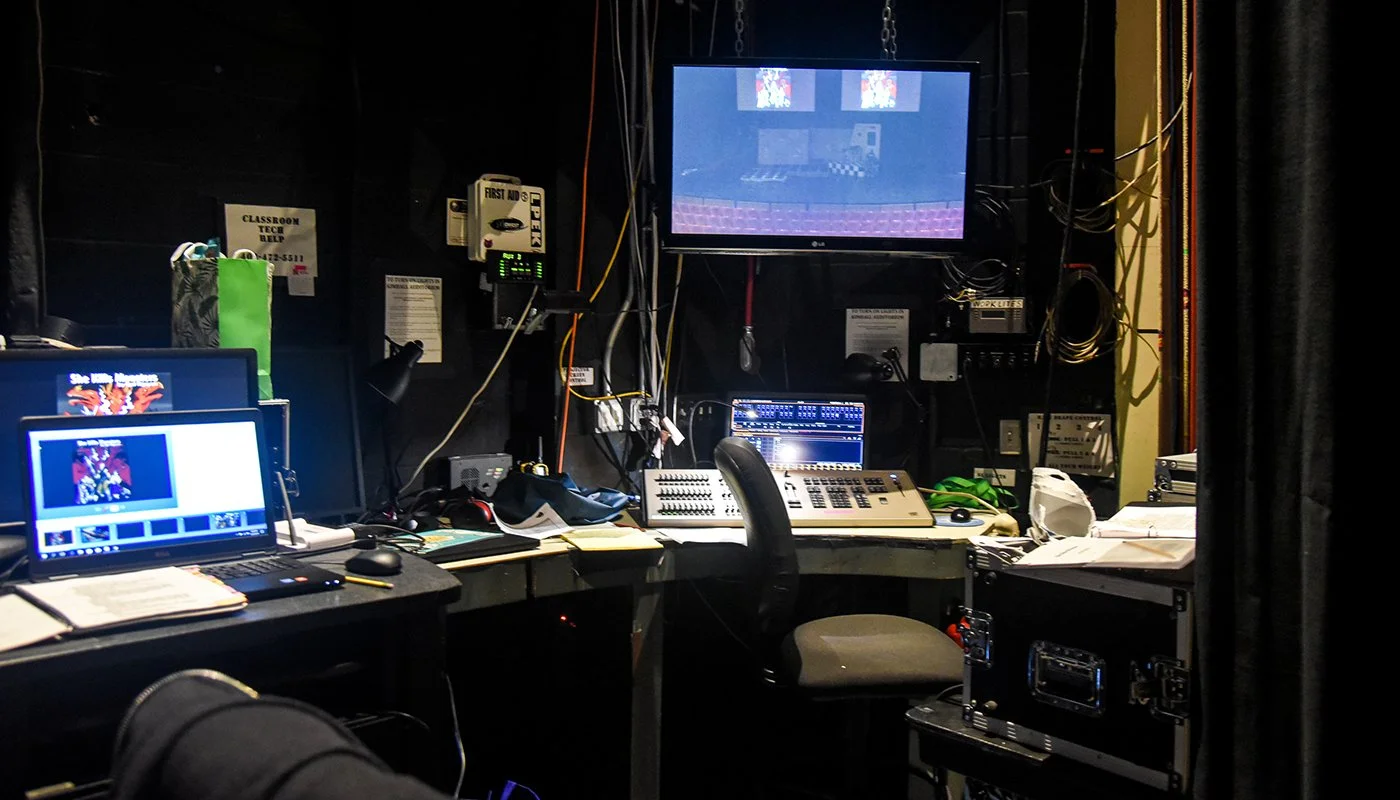Call the Hold: Protect Your Cast, Crew, and Crowd
by Chris Peterson
There’s a clip making the rounds on TikTok that honestly made my stomach turn. It’s a video of a young performer in Newsies delivering her lines like a pro, even as the wind is ripping through the set. A door comes loose and nearly hits her. The backdrop is visibly shaking. You can hear the wind howling over the music. And yet, the show… went on.
But it shouldn’t have.
At some point, someone, anyone, should have called a hold. Not just for the safety of the actors onstage, but for the crew backstage, the audience sitting out front, and everyone else who could’ve been hurt by a flying door or collapsing set. I said as much in a video responding to seeing this happen.
This is a plea to every stage manager out there: if something feels unsafe, stop the show. Period. You are the last line of defense between a hiccup and a hazard. No song, no scene, no standing ovation is worth someone ending up in the hospital.
Yes, we’re trained to push through. Yes, performers are tough. Yes, the audience came to see a show. But none of that trumps basic safety. When we normalize pushing through dangerous conditions, we’re setting a terrible example for younger performers and future stage managers. We’re telling them the show matters more than their well-being. And it doesn’t.
Let me tell you about a stage manager I worked with years ago who got it right.
We were in the middle of a performance—packed house, lots of energy, everything running smoothly. Until it wasn’t. A heavy prop piece had been reset incorrectly during intermission, and mid-scene, it started to slide forward. Not only was it a hazard to the performers, but if it had tipped just a few more inches, it could’ve easily rolled off the stage into the front row. The audience had no idea how close they were to real danger.
Without hesitation, our stage manager got on the mic, brought up the house lights, and calmly stopped the show. “Ladies and gentlemen, we’re going to pause briefly to make a quick adjustment for your safety and the safety of our cast.” That was it. Clear, professional, and done without panic. The crew fixed the problem in under five minutes, and the show resumed with applause and gratitude from the crowd.
Nobody complained. Nobody demanded a refund. In fact, several audience members thanked us afterward for handling it with such care.
That’s what good stage management looks like. Not just keeping things moving, but knowing when they shouldn’t.
I’ve seen microphones go dead, sets collapse, lights short out, even performers pass out onstage. Every time, the moment of hesitation from the booth or backstage is what stuck with me. That delay—that few seconds of “Should we stop?”—can be the difference between a close call and a tragedy.
And it’s not just about physical safety. If an actor has a panic attack, or someone is clearly in medical distress, or something happens in the audience that disrupts the environment, a pause might be necessary. Holding the show shows leadership. It shows care. And it shows you're paying attention.
So if you’re in the booth, headset on, watching it unfold, and your gut says something’s wrong: say something. Make the call. Call the hold. Stop the show. The actors will thank you. The crew will thank you. And you’ll go home knowing you protected your team.
The show must go on? Only when it’s safe to do so. Let’s not forget that.
